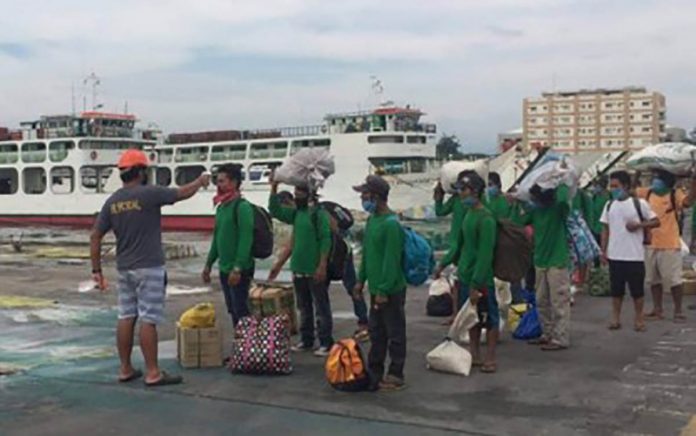
BACOLOD City – Owners of sugarcane plantations lauded the assistance provided by Agriculture Secretary William Dar to bring back the “sacadas” or migrant sugarcane workers to this province for the milling season set to start in September.
The Confederation of Sugar Producers Associations Negros-Panay Chapter, led by chairman Nicolas Ledesma Jr., cited the letters sent by Dar through Sugar Regulatory Administration chief Hermenegildo Serafica to various local government chief executives in Negros and Panay requesting their offices to ensure the unhampered and unrestricted movement of migrant sugar workers.
Some 5,000 to 6,000 migrant cane cutters from Antique are working in sugarcane plantations in this province.
“They are critical and essential for land preparation and farming activities guaranteed by the Inter-Agency Task Force for the Management of Emerging Infectious Diseases (IATF) and Department of Agriculture issuances, specifically during this time when we are about to start the new cropping season on Sept. 1,” the group said in a statement on Aug 7.
Dar addressed the letters to governors Eugenio Jose Lacson of this province, Arthur Defensor Jr. of Iloilo, and Rhodora Cadiao of Antique, as well as to mayors Evelio Leonardia of this city and Jerry Treñas of Iloilo City.
The IATF approved the Food Resiliency Protocol, which was supported by the advisory from the Department of the Interior and Local Government, reiterating that food and essential goods must remain unhampered to ensure food security and availability.
“We are truly grateful for the efforts of our government leaders, especially Gov. Lacson and Secretary Dar, for streamlining the back-to-work travel of our migrant sugarcane workers,” Ledesma said.
He added that Dar has requested Labor Secretary Silvestre Bello III to use the social amelioration program for sugar industry workers through the Department of Labor and Employment’s Bureau of Workers with Special Concerns to “financially accommodate and aid in the payment of the requisite rapid test of migrant workers for their return to Negros Occidental,” the country’s top sugar-producing province.
Ledesma also expressed his appreciation to Lacson for issuing the guidelines for the entry of “sacadas” to this province.
The guidelines, released by the governor on Aug. 6, were sent to all planters’ associations, requesting them to submit a list of migratory workers they require for the coming crop year.
Lacson also required them to include pertinent information, such as Philippine Health Insurance Corp. (PhilHealth) registration of workers, place of assignment, and preferred date of transport to this province.
The arriving workers will be required to undergo a reverse transcription-polymerase chain reaction (RT-PCR) test for coronavirus disease 2019.
Members of PhilHealth can charge their testing fee to the agency.
On the other hand, the planter who will employ those not covered by PhilHealth will be required to pay a deposit of P1,500 per worker to his association.
The amount will be remitted to the provincial government to help cover the cost of testing.
Individual planters are required to provide transportation for their farmworkers from the port of disembarkation to their quarters in the farm, which will serve as a quarantine facility.
The workers must undergo mandatory quarantine until their RT-PCR test yield negative for the virus.
Those who will test positive will be transferred immediately to the provincial quarantine facility. (With a report from PNA/PN)



